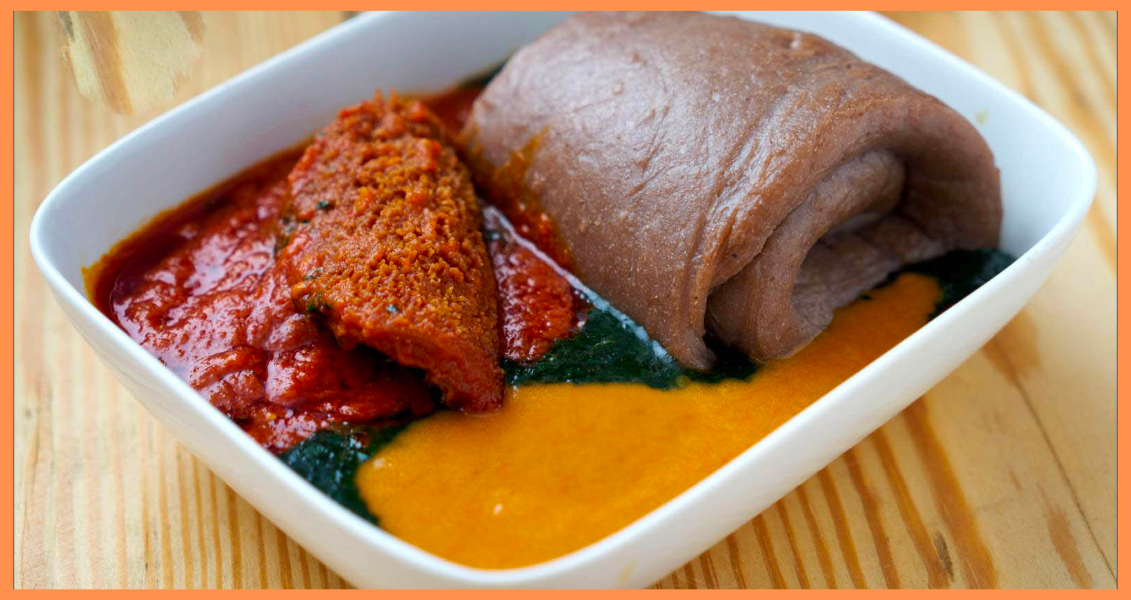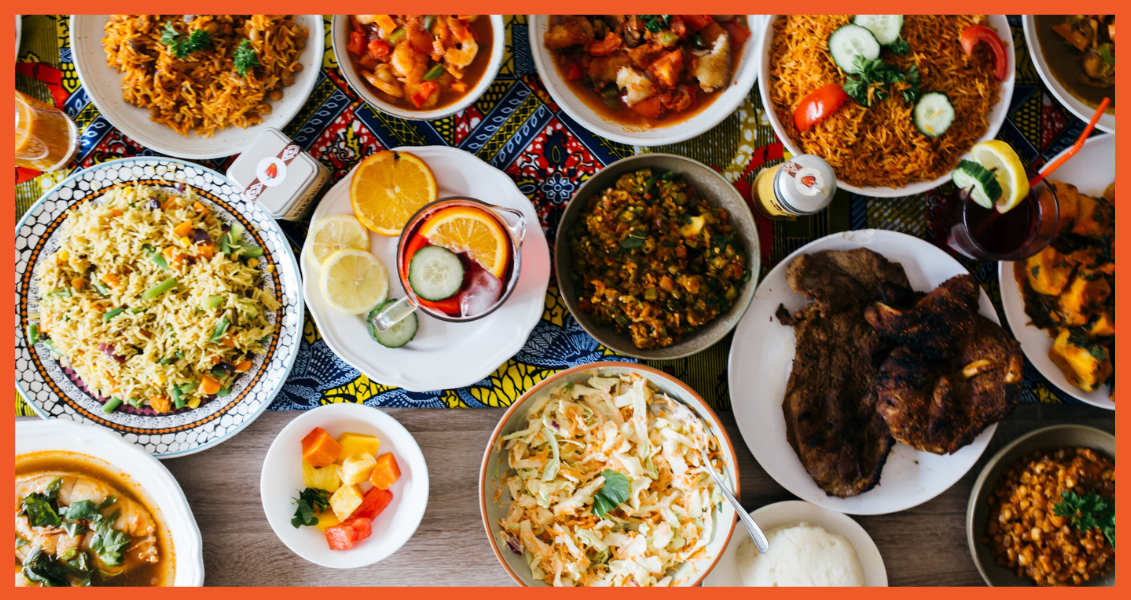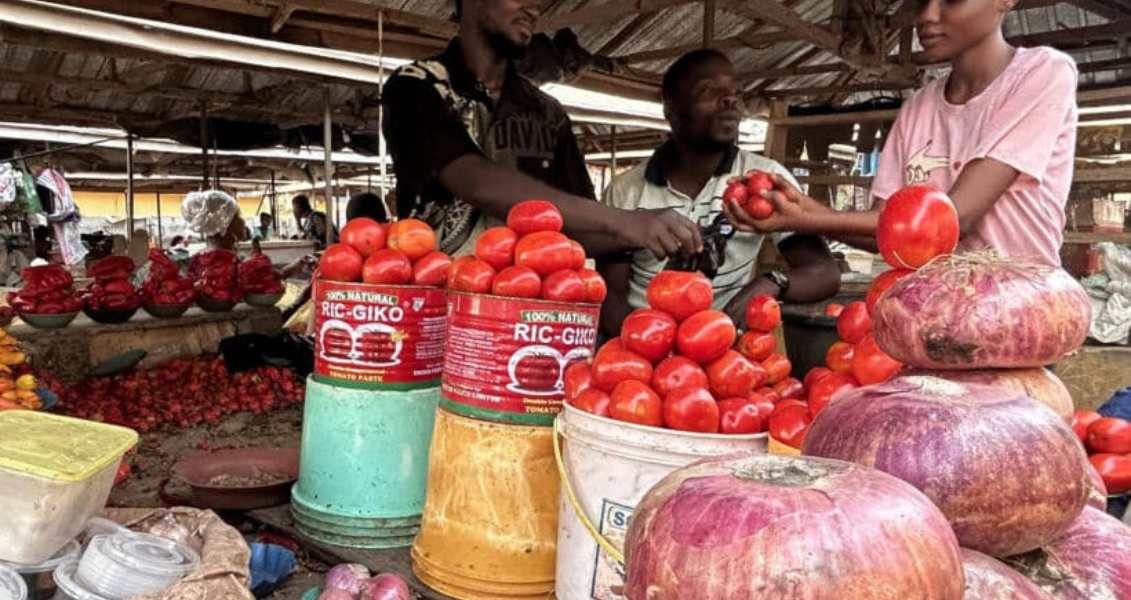Welcome to the newsletter for people who love to eat, drink and travel. Every Thursday, by 3 pm, you’ll receive the tastiest stories from Africa’s dining tables. Forward to someone!

A cup of garri contains 857 calories. I know this because I once tried to gain weight by consuming as many calories as possible within the shortest time. I read that as a man, I needed to consume an average of 2500 calories a day to sustain my current weight. However, I needed to consume much more than the recommended average since I was trying to gain weight.
In an age where it seems like everyone is trying to lose weight, why was I hellbent on gaining weight? Well, I weighed 65kg, and I looked emaciated as hell. Bad eating habits, corporate stress, and the Abuja sun contributed to this. Unfortunately, I couldn’t “love myself the way I was”, mainly because most of my fashion choices required my body to look a certain way before I could pull off such fits. So I decided to bulk up. One problem, though, was that I didn’t consider the cost before embarking on the arduous journey because, omo, they didn’t inform me that bulking up through high-calorie meals was not for everybody.
Long story short, after trying for one month, I decided to love myself the way I was, especially after eggs started selling for 60 naira per piece. This was a lifetime ago. If I thought things were tough back then, we are in freaking armageddon right now.

The other day, my friend visited my house and wanted to gain calories because it was part of his bulking-up regiment at the gym. I laughed, he laughed, naira laughed, Satan laughed. He had not bought foodstuff for himself in a long time, so he didn’t know much about the current food cost. He just knew he had to consume around 6000 calories a day. We drew up a list of some high-calorie foods that might help him achieve his daily calorie count. This list included everything from eggs to chicken to fish to protein shakes. Then we headed to the market.
Firstly, a crate of eggs costs 4000 naira. He scromed.

Then a KG of chicken went for 5,200 naira. He had spent just a little south of 10,000 naira and hadn’t started yet. By the time we got the milk, the protein bars, and the carbs, he had spent about 60K on just a week’s supply of calories. After one week of bulking up and adding just around 500 grams, he also decided to love himself the way he was.

And this brings me to the core of today’s newsletter. Bulking up is expensive as hell. My God. It doesn’t help that we are living in perilous times where everything is determined to steal your peace of mind and some kilograms off your weight. If you intend to gain some calories with a low budget, you can try these cheaper options; I must warn you, with inflation, nothing is really cheap anymore.
Bread:
Bread, especially white bread, is high in calories and carbs, potentially leading to weight gain.
Whole-grain bread is a healthier option, providing fibre and nutrients for satiety.
Sweet Potatoes:
Sweet potatoes are rich in nutrients, providing a good source of fibre, vitamins (such as vitamins A, C, and B), minerals (including potassium, manganese, and magnesium), and antioxidants. They are also relatively low in unhealthy fat, making them a nutritious option for a balanced diet.
Instant Noodles:
Instant noodles contain refined carbs and high sodium, promoting weight gain. Low in fibre and protein, they may not satisfy hunger, leading to overeating. However, with the rising cost of noodles in the market, one can only hope they remain affordable for longer.
Margarine:
Despite being touted as healthier than butter, Margarine can still lead to weight gain due to its calorie and fat content. Attention to portion sizes and overall diet balance is crucial.
Groundnuts:
Groundnuts are calorie-rich but offer protein, fibre, and nutrients that aid satiety. Moderation is vital to enjoying groundnuts without contributing to weight gain.
READ ALSO: Food inflation: Why na our turn?
This is the most I can do for you at this point, my dears. As you embark on this weight-gain journey, I sincerely wish you and your finances luck because the streets are crying. You can substitute with the cheaper alternatives listed above. Otherwise, you can just love yourself the way you are.
Do not forget to follow our Twitter account here. Also, remember to recommend our newsletter to your friends. Till I see you again next week, bye!















